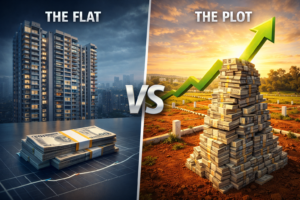The Mumbai-Nagpur Expressway, also known as the Maharashtra Samruddhi Mahamarg, is a remarkable infrastructural project that has transformed the landscape of Maharashtra, India. This 701-kilometer-long, six-lane expressway, officially named the Hindu Hrudaysamrat Balasaheb Thackeray Maharashtra Samruddhi Mahamarg, has not only revolutionized connectivity between the state’s capital, Mumbai, and its third-largest city, Nagpur but has also emerged as a beacon of economic growth and development.
A Vision for a Connected Maharashtra
The Mumbai-Nagpur Expressway was envisioned as a game-changer for Maharashtra, aiming to bridge the gap between the bustling financial hub of Mumbai and the resource-rich regions of Vidarbha and Marathwada. The project, inaugurated by Prime Minister Narendra Modi in 2018, aimed to reduce the travel time between the two cities from 17 hours to just 7 hours, opening up a world of possibilities for trade, commerce, and tourism.
Engineering Marvels and Economic Boost
The Mumbai-Nagpur Expressway is a testament to India’s engineering prowess. It features a host of impressive structures, including 65 flyovers/viaducts, 24 interchanges, 6 tunnels, over 400 vehicular underpasses, and 300 pedestrian and cattle underpasses. The expressway’s construction has also involved the planting of over 12.68 lakh trees, making it a true green corridor.
Beyond its infrastructural marvels, the Mumbai-Nagpur Expressway has emerged as a catalyst for economic growth in the region. It has opened up new avenues for businesses, facilitated the movement of goods and services, and created employment opportunities. The expressway has also spurred the development of industrial corridors, agro-processing zones, and tourism hotspots along its route.
A Gateway to a Brighter Future
The Mumbai-Nagpur Expressway is more than just a road; it is a symbol of Maharashtra’s aspirations for progress and prosperity. It has transformed the way people connect, businesses operate, and communities thrive. As the expressway continues to unfold its impact, it is poised to shape the future of Maharashtra, driving economic growth, social upliftment, and sustainable development for years to come.
Key Highlights of the Mumbai-Nagpur Expressway:
- Length: 701 kilometers
- Lanes: 6 (expandable to 8)
- Access control: Yes
- Features: 65 flyovers/viaducts, 24 interchanges, 6 tunnels, 400+ vehicular underpasses, 300+ pedestrian and cattle underpasses
- Green initiatives: Planting of over 12.68 lakh trees along the expressway
- Economic impact: Facilitated trade, commerce, tourism, industrial development, agro-processing, and job creation
The Mumbai-Nagpur Expressway stands as a shining example of India’s commitment to infrastructure development and its transformative power in driving economic growth and social progress. It is a testament to the vision and determination of the people of Maharashtra, who are paving the way for a brighter and more prosperous future.
Frequently Asked Questions (FAQ’s)
Ans: The Mumbai-Nagpur Expressway is a massive 701 kilometers long.
Ans: As of April 2024, a significant portion (approximately 600 km) connecting Nagpur to Bharvir is operational. The remaining stretch is expected to be completed by the end of 2024.
Latest Blogs
- Plots vs. Flats: The “5-Year Challenge” – Who Won the Jackpot? (NRI Case Study)
- Power of Attorney (GPA) Format for NRIs Buying Property in Hyderabad (2026 Guide)
- TDS Rates (20% vs 1%) on Property Sale by NRI: 2026 Guide









